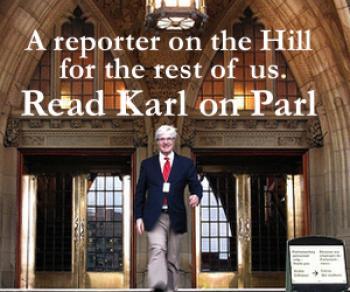There is dissension in the Harper Conservative ranks.
Social conservatives, especially those for whom abortion is a key issue, want to speak out, but the Party leadership is trying to silence them.
Mark Warawa, the MP for Langley in British Columbia, tried getting a private member’s bill that would have had the House condemn sex selection abortions to the floor, but the Conservative House Leader and Whip ruled it ‘non-vote-able.’
Warawa then tried to speak up during the fifteen minutes a day reserved for Members’ statements. Again, the Conservative Whip, Gordon O’Connor blocked him. Shortly before Warawa had been scheduled to make his statement, last Wednesday, the Whip made sure he was dropped from the list.
But Warawa is nothing if not persistent.
On Tuesday of this week he rose in the House on a question of privilege. He argued that the time reserved for members’ statements is just that — reserved for the members, and that the party leadership does not have the right to block anyone.
“I have experienced the removal of my right and my privilege,” the British Columbia MP said, “The question for you, Mr. Speaker, is: Should every member have that equal right? Yes, it is clear that every member does. How is it being managed? Is it being managed in a way that members could have that right removed? Yes, I have experienced that and others have too.”
O’Connor defended the Party leadership’s right to determine who gets to speak. That’s how it’s worked for many years, the Conservative Whip said, and added that the Speaker has consistently deferred to the Whips on this matter.
“The bottom line is that each party makes these decisions,” the government Whip explained, “The member for Langley is essentially calling on you to inquire into the question of how such lists are prepared by the parties in the House, essentially being invited to become involved in adjudicating the internal affairs of party caucuses and their management.”
And that, O’Connor made clear, would be well beyond the Speaker’s authority.
The NDP reserved the right to take a position on this dispute at a later date.
But to Elizabeth May, Leader of the Green Party and that party’s sole MP, there is a bigger issue at stake.
This fundamental issue, as May sees it, relates to the controversy a number of years back over the legitimacy of a coalition government. Stephen Harper said such a coalition would be a way for the “losers” to snatch “victory” from the winners.
Harper subscribes to what we could call the “electoral college” theory of parliament.
This is how the theory goes:
When Canadians vote in a federal election they may think they are electing Members of Parliament, but they are really choosing Electors – as in the USA Electoral College – whose main job is to anoint a virtually all-powerful and unchecked executive, led by the leader of the “winning” party, who becomes Prime Minister.
There is a winning party and there are losing parties, and the true and essential purpose of an election is to choose the winner, full stop. The idea that the citizens throughout the country are electing their representatives to the Parliament in Ottawa is quaint, sentimental and old-fashioned, according to the Harper view of parliamentary democracy.
May takes a very different view. She put it this way, in relation to Warawa’s question of privilege.
“We are not here as teams. The principle of Westminster parliamentary democracy is that we are here are representatives of our constituencies and our constituents,” she told the House, “Incidentally, we are merely members of political parties. Political parties do not exist in our Constitution. They are not an essential part of our democracy. They have grown to be seen to be the most interesting thing going on and we have grown to see politics as some sort of sport. However, democracy is not a sport. We are not playing on teams, and each individual member has individual rights…”
Speaker Andrew Scheer reserved judgment on Warawa’s question of privilege.
But whatever Scheer finally decides, the larger question of the fate of parliamentary democracy in Canada, which May evokes so eloquently, will still remain.



